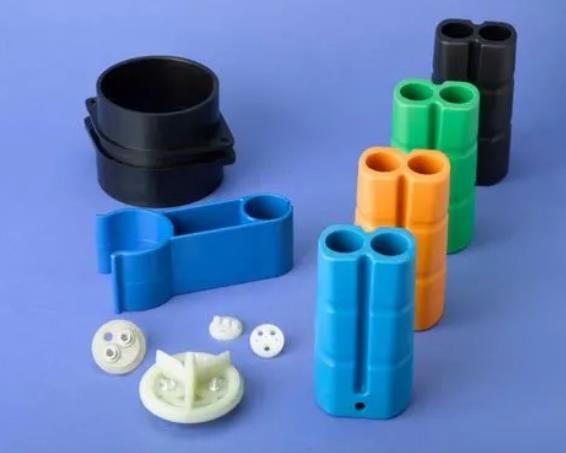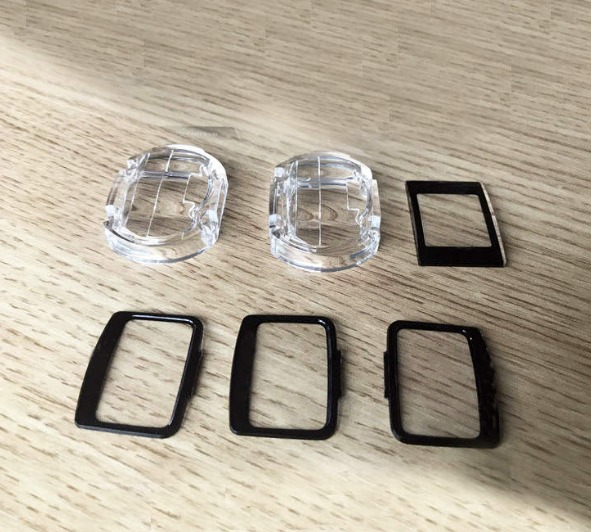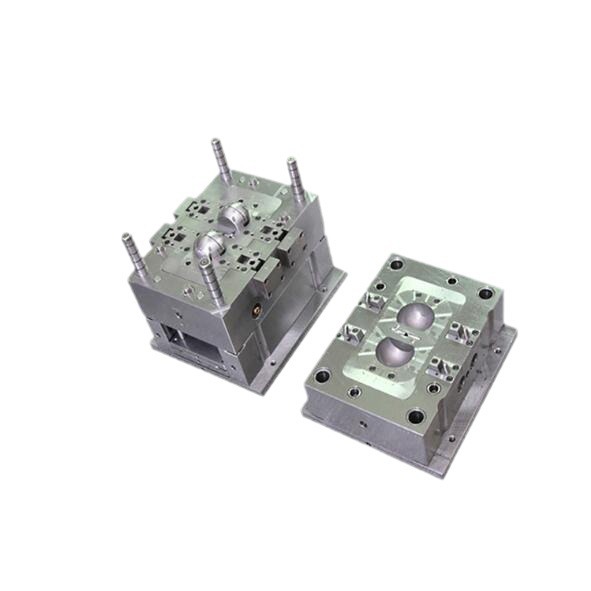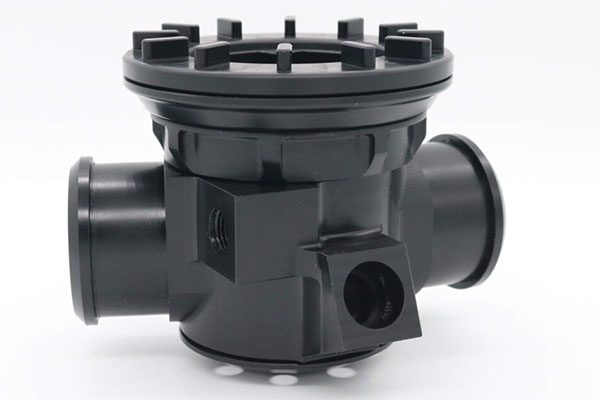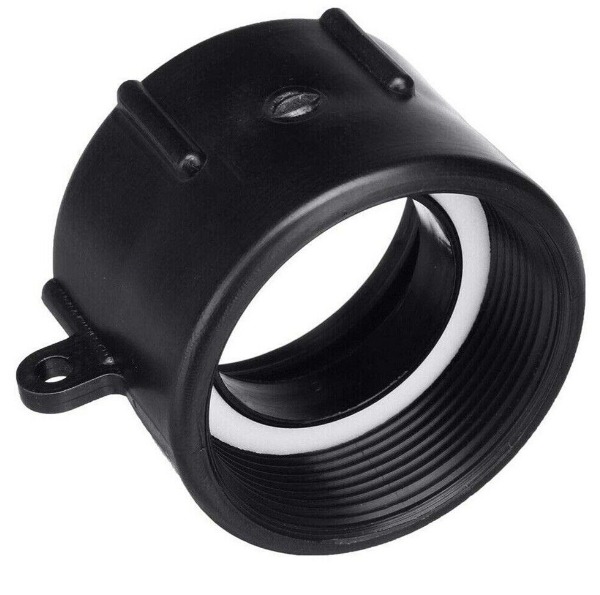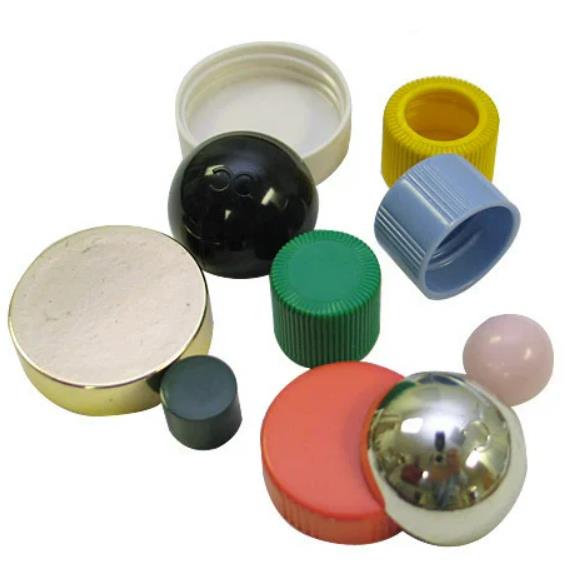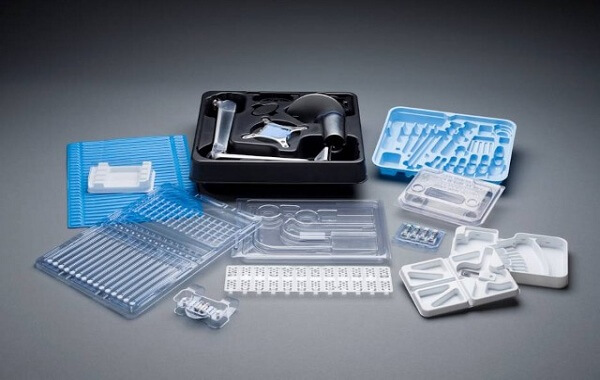Introduction to PEEK Plastic Injection Molding
PEEK plastic injection molding is a manufacturing process that involves injecting molten Polyether Ether Ketone (PEEK) plastic into a mold cavity to create a wide range of precision components. PEEK, a high - performance thermoplastic, has been increasingly popular in various industries due to its outstanding properties.
Understanding the properties and applications of PEEK plastic injection molding is crucial for solving many problems faced by users. For manufacturers, choosing the right material and molding process can improve product quality, reduce production costs, and shorten the production cycle. For designers, knowing the capabilities of PEEK injection molding helps in creating more innovative and functional product designs. Whether you are in the automotive, aerospace, medical, or other industries, a deep - dive into PEEK plastic injection molding can provide you with valuable insights to make informed decisions.
Properties of PEEK Plastic
1. Mechanical Strength
PEEK plastic is renowned for its remarkable mechanical strength. In comparison with some common plastics, the advantage of PEEK becomes evident. For instance, take a look at the following table:
| Plastic Material | Tensile Strength (MPa) | Flexural Modulus (GPa) |
| PEEK | 90 - 100 | 3.5 - 4 |
| ABS | 43 | 2.2 - 2.4 |
| PVC | 40 - 50 | 2.5 - 4.5 |
This table clearly shows that PEEK has a much higher tensile strength than ABS and PVC. Its high tensile strength enables PEEK - made components to withstand greater pulling forces without breaking. The relatively high flexural modulus means that PEEK is stiffer and less likely to bend under stress. This makes PEEK an ideal choice for applications where high - strength and rigidity are required, such as in aerospace components like aircraft engine parts and structural elements in high - performance racing cars.
2. Chemical Resistance
PEEK plastic exhibits excellent chemical resistance. It can resist a wide range of chemical substances, including most acids (except concentrated sulfuric acid), alkalis, and organic solvents. For example, in a chemical processing plant, PEEK components can be used in pipes, valves, and pumps that come into contact with various corrosive chemicals like hydrochloric acid, sodium hydroxide, and acetone.
- Against acids such as acetic acid, hydrochloric acid (dilute), and nitric acid (dilute), PEEK shows no signs of corrosion or degradation, maintaining its structural integrity even over long - term exposure.
- When it comes to alkalis like potassium hydroxide and sodium carbonate solutions, PEEK remains stable.
- In organic solvents such as ethanol, toluene, and chloroform, PEEK's chemical structure remains unaffected. This chemical stability ensures that PEEK - based products have a long service life in chemically harsh environments, reducing the need for frequent replacements and maintenance.
3. Thermal Stability
One of the most outstanding properties of PEEK plastic is its exceptional thermal stability. PEEK can maintain its mechanical and chemical properties over a wide temperature range. It has a long - term continuous use temperature of up to 260°C. In short - term applications, it can even withstand temperatures as high as 300°C. For example, in an industrial oven where the temperature reaches 280°C for a short period of time, PEEK - made insulation parts will not deform, melt, or lose their mechanical strength. This high - temperature resistance makes PEEK suitable for applications in high - temperature environments, such as in the automotive engine compartment, where components need to endure the heat generated during engine operation, or in the aerospace industry for parts near the aircraft's engines or in high - temperature exhaust systems.
4. Dimensional Stability
PEEK plastic offers excellent dimensional stability. It has a low coefficient of thermal expansion, which means that its dimensions change very little with temperature variations. This property is crucial for applications that require high - precision manufacturing. For example, in the production of electronic connectors, the precise fit of PEEK - made parts is essential. If the dimensions of the connector parts change due to temperature fluctuations during the manufacturing process or in the final application environment, it could lead to poor electrical contact or even failure of the entire electronic device. PEEK's dimensional stability ensures that parts maintain their exact shape and size, allowing for tight tolerances in manufacturing and reliable performance in the final product.
Applications of PEEK Plastic Injection Molding
1. Aerospace Industry
In the aerospace industry, every component's performance is critical for flight safety and efficiency. PEEK plastic injection molding has found extensive applications here. For example, in aircraft interiors, PEEK - made components are used in seat structures. PEEK's high strength - to - weight ratio is a significant advantage. It can reduce the weight of the seat while maintaining the necessary strength to withstand the dynamic forces during flight, such as take - off, landing, and turbulence. Compared to traditional metal materials used in seat manufacturing, PEEK can reduce the weight by up to 50% while still providing excellent durability.
In aircraft engines, PEEK injection - molded parts are used in seals and bearings. The high - temperature resistance of PEEK allows these components to function properly in the extremely high - temperature environment of the engine. For instance, engine seals made of PEEK can effectively prevent the leakage of high - temperature gases, ensuring the engine's high - efficiency operation. In addition, PEEK's low coefficient of thermal expansion ensures that these components maintain their dimensional accuracy even when exposed to large temperature variations, reducing the risk of component failure due to thermal stress.
2. Medical Field
In the medical field, PEEK plastic injection molding plays a crucial role in meeting the special requirements of medical devices and implants. For medical device components, such as surgical instruments, PEEK's high strength and chemical resistance are highly valued. PEEK - made surgical instrument handles are lightweight yet strong, providing doctors with better control during surgeries. These handles can also withstand repeated sterilization processes, whether it is autoclaving (at high temperatures and pressures) or chemical sterilization, without losing their mechanical properties or being corroded.
When it comes to implants, PEEK's biocompatibility is a key factor. PEEK can be used to manufacture spinal implants, such as intervertebral spacers. Its biocompatibility means that the body is less likely to reject the implant, reducing the risk of complications. Moreover, PEEK's mechanical properties are similar to those of human bone in some aspects. This allows the implant to better integrate with the surrounding bone tissue, promoting bone growth and providing long - term stability for the spine.
3. Automotive Sector
In the automotive industry, PEEK plastic injection molding is used to manufacture various components that contribute to improved vehicle performance. One example is in engine components. PEEK - made engine oil pans can replace traditional metal oil pans. PEEK's high - temperature resistance enables it to withstand the heat generated by the engine, while its lightweight nature helps to reduce the overall weight of the vehicle. This weight reduction can lead to better fuel efficiency, with studies showing that for every 10% reduction in vehicle weight, fuel consumption can be reduced by about 6 - 8%.
Another application is in automotive electrical systems. PEEK injection - molded connectors are used due to their excellent electrical insulation properties and dimensional stability. These connectors can ensure reliable electrical connections even in harsh automotive environments, which may include vibrations, temperature variations, and exposure to chemicals. The high - precision molding of PEEK allows for a tight fit of the connectors, minimizing the risk of electrical failures due to loose connections.
4. Electronics Industry
In the electronics industry, PEEK plastic injection molding is applied in multiple aspects. For example, in the production of high - end electronic device housings, PEEK is an ideal material. Its high strength can protect the internal components of the device from external impacts, while its excellent electrical insulation properties prevent short - circuits and electromagnetic interference. In addition, PEEK's dimensional stability ensures that the housing maintains its shape accurately, which is crucial for the precise assembly of internal components.
PEEK is also used in the manufacturing of printed circuit boards (PCBs). PEEK - based PCBs can withstand higher temperatures during the soldering process compared to traditional PCB materials. This allows for more efficient manufacturing processes and also improves the long - term reliability of the PCB in high - temperature operating environments, such as in industrial control electronics or high - performance computing equipment.
Yigu Technology's View
As a non - standard plastic metal products custom supplier, Yigu Technology highly values PEEK plastic injection molding. The outstanding properties of PEEK, such as high strength, chemical and thermal resistance, enable us to create customized products that meet the most demanding requirements. In custom manufacturing, PEEK's dimensional stability ensures the precision of non - standard parts, reducing errors and improving product quality. Its wide range of applications in industries like aerospace, medical, and automotive means there is a growing demand for customized PEEK components. Yigu Technology is committed to leveraging PEEK plastic injection molding to provide innovative and high - quality solutions, helping clients gain a competitive edge in their respective markets.
FAQ
1. What are the key considerations when choosing PEEK plastic for injection molding?
When choosing PEEK plastic for injection molding, several factors need to be considered. First, the grade of PEEK should match the application requirements. Different grades have varying mechanical, thermal, and chemical properties. For example, if high - temperature resistance is crucial, a PEEK grade with a higher continuous use temperature should be selected. Second, the cost - performance ratio must be evaluated. PEEK is generally more expensive than common plastics, so it's necessary to ensure that its superior properties justify the cost for the specific application. Third, the compatibility with the injection - molding equipment is important. Ensure that the standard injection - molding machine can reach the processing temperature required for PEEK, which is usually between 350 - 400°C, and check if any modifications to the equipment, such as using ceramic heating coils, are necessary.
2. How does the cost of PEEK plastic injection molding compare to other plastics?
PEEK plastic injection molding is typically more expensive than that of common plastics. For instance, materials like ABS and PVC are much more cost - effective. The high cost of PEEK is mainly due to its complex synthesis process and the high - performance properties it offers. In terms of injection - molding costs, the higher processing temperature requirements of PEEK may also lead to increased energy consumption during the molding process. However, in applications where its unique properties are essential, such as in aerospace or high - end medical devices, the long - term benefits, like longer service life, reduced maintenance, and better performance, can offset the initial higher cost.
3. Can PEEK plastic injection molding be used for small - batch production?
Yes, PEEK plastic injection molding can be used for small - batch production. Although injection molding is often associated with large - scale manufacturing due to the high cost of mold development, for PEEK, small - batch production is viable. In some cases, the use of rapid prototyping techniques for mold making can reduce the mold - related costs. Also, CNC machining of PEEK can be a supplementary option for small - batch production, especially when complex geometries are involved. Additionally, 3D printing of PEEK, which is a form of additive manufacturing related to injection molding, is also emerging as a solution for small - batch production, allowing for more customized and low - volume production of PEEK components.
